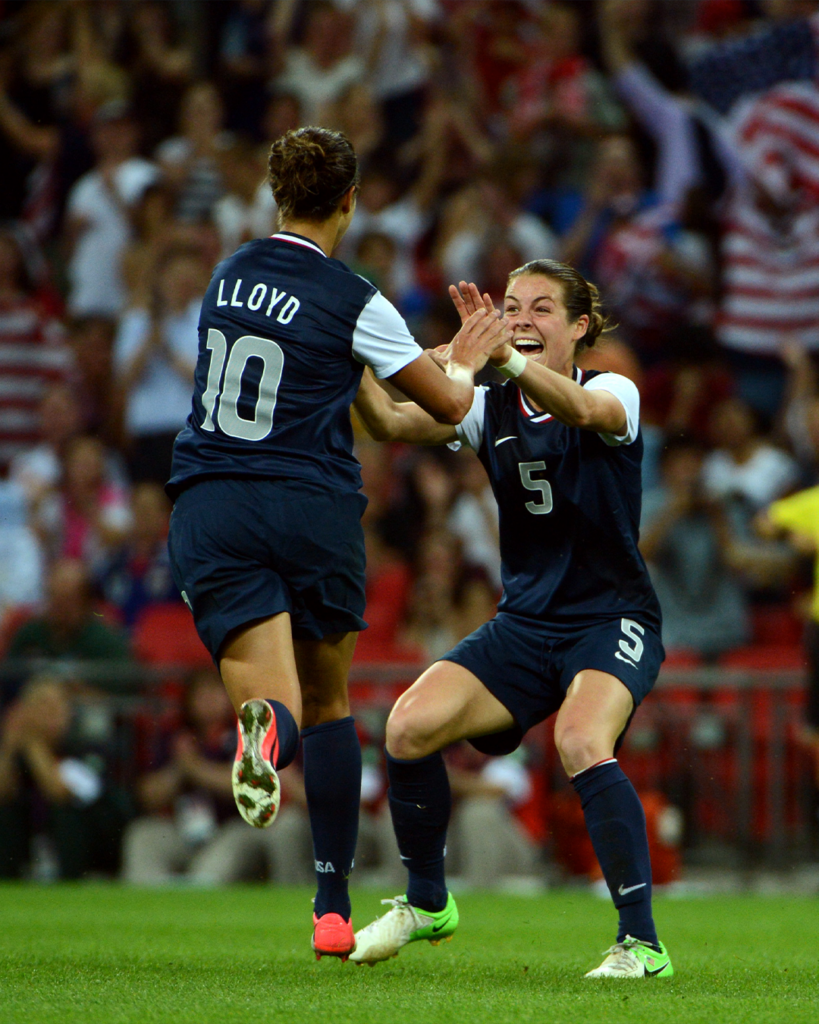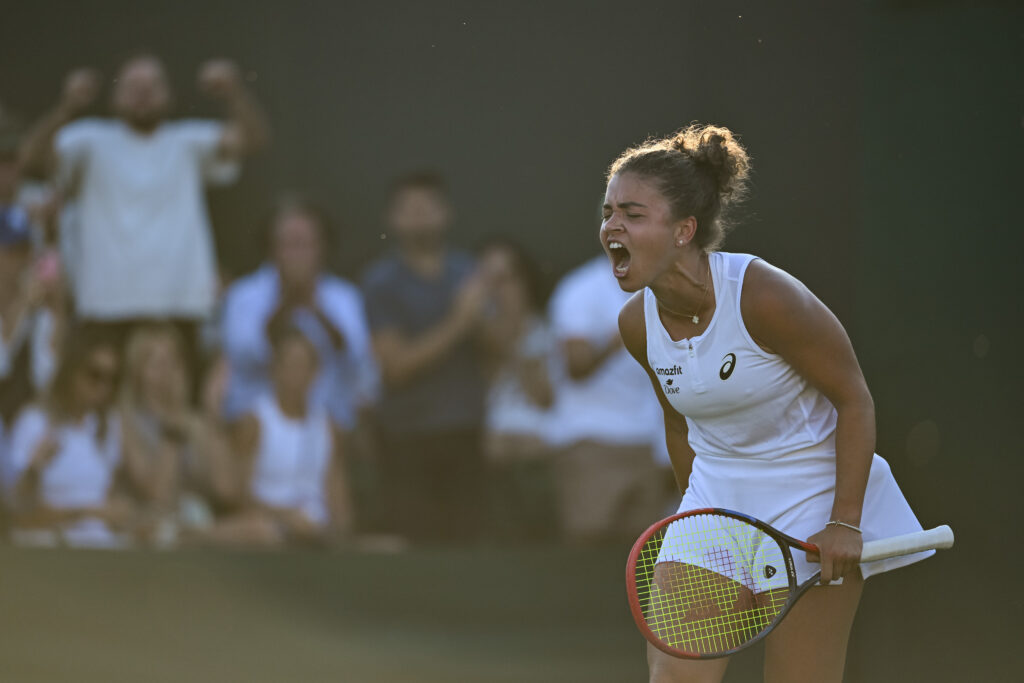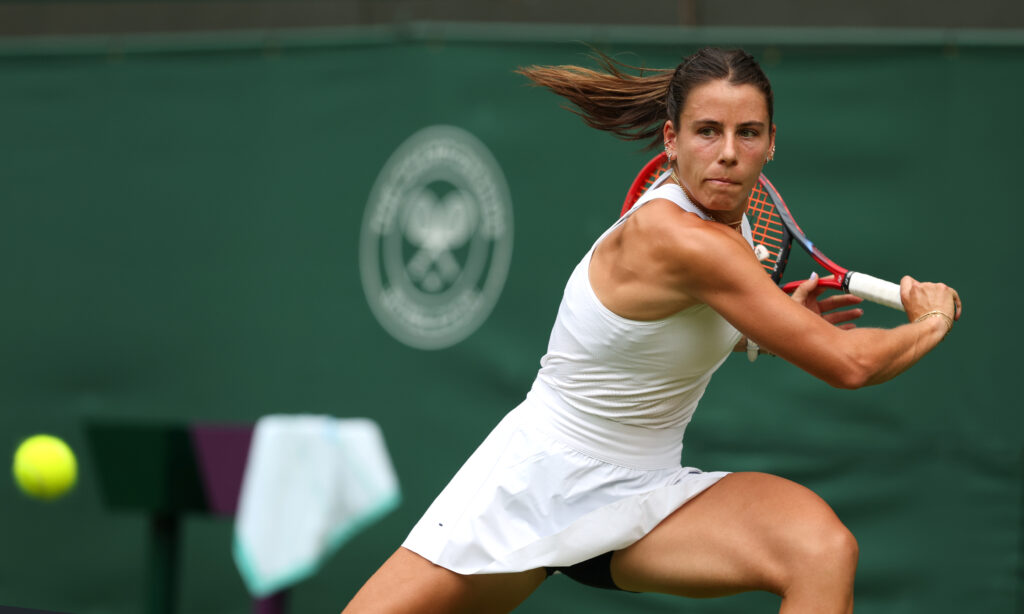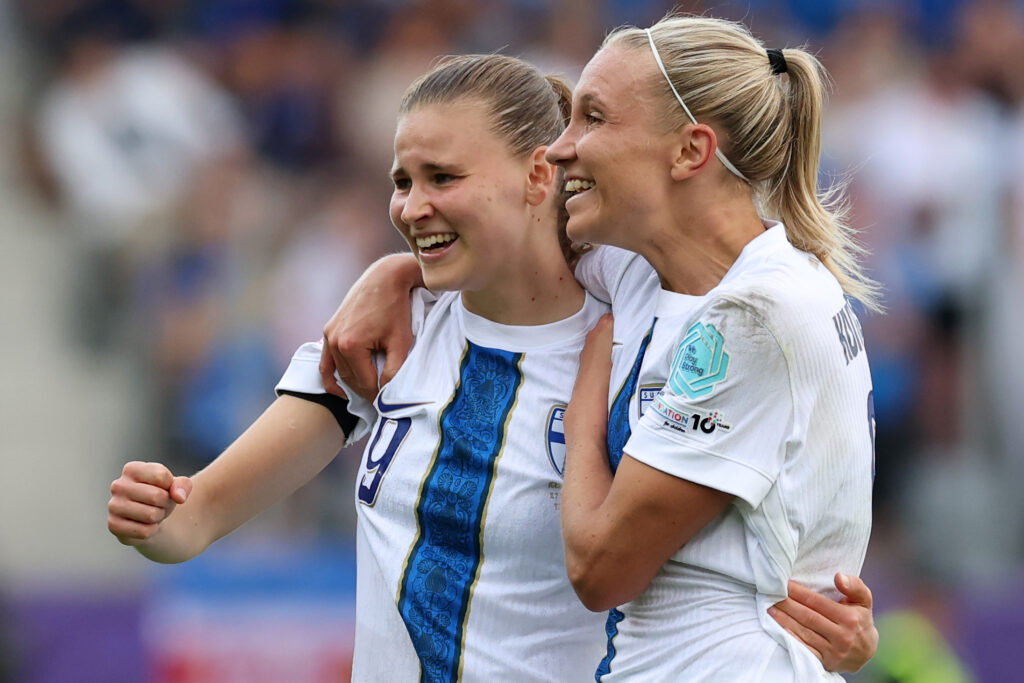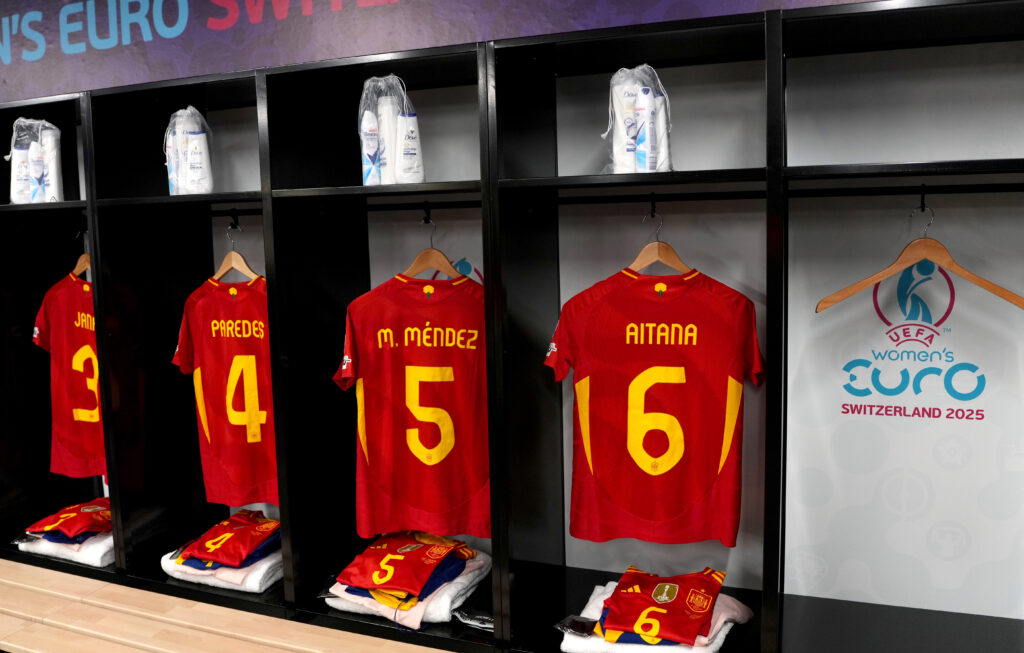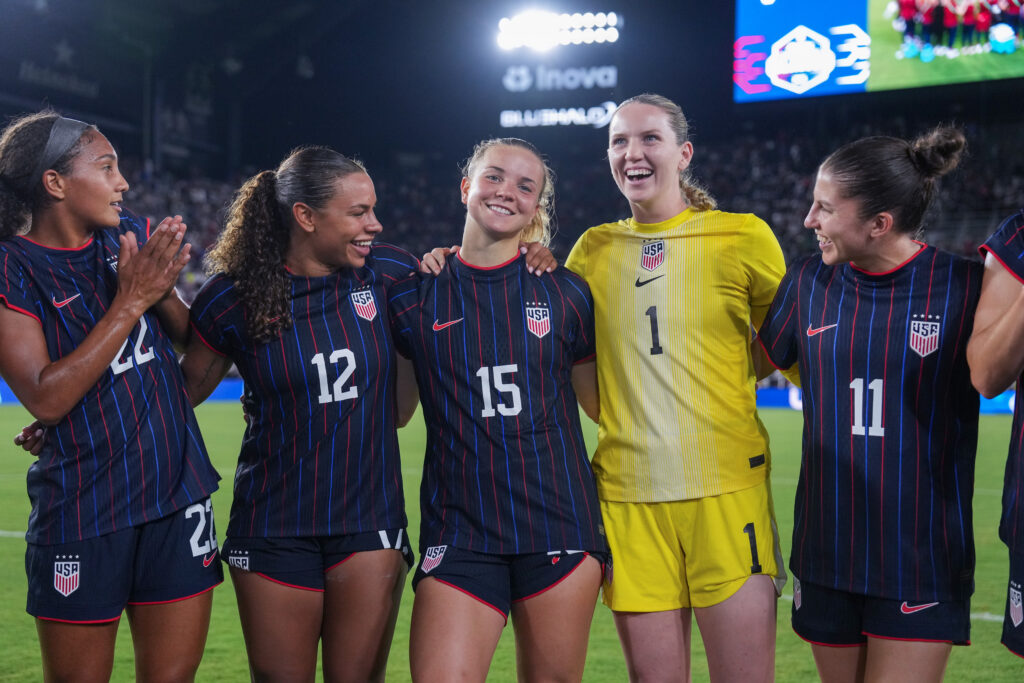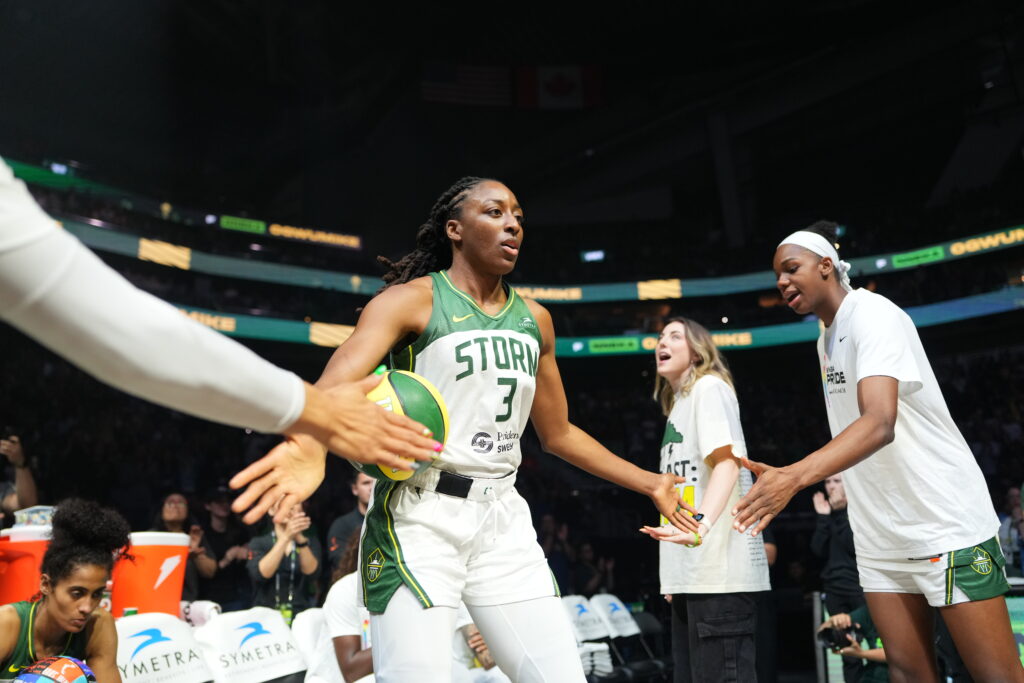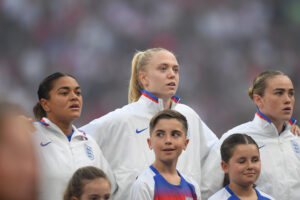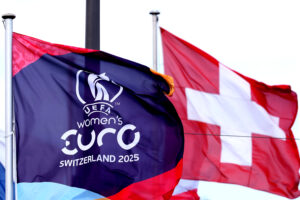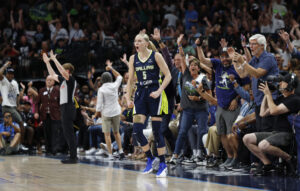Scanning the timeline of Carli Lloyd’s iconic soccer career, there is an obvious pinnacle: her stunning hat trick in the 2015 World Cup Final versus Japan. That single performance was life-changing, leading to numerous TV appearances, big deal endorsements, speaking tours, and even a book deal — all the ingredients necessary for her to maintain her stature and personal brand long after her playing career ends.
Four years prior to this historic accomplishment, Lloyd missed a penalty kick in the final match of the 2011 World Cup, also against Japan. Lloyd’s whiff could have been a permanent stain on her resume, and at the time, she was clearly crushed by her miscue. But in a recent conversation with her friend and long-time teammate Kelley O’Hara on the Just Women’s Sports podcast, Lloyd admitted to now seeing that heartbreaking moment as a blessing in disguise for both herself and the team.
Going into the 2011 World Cup in Germany, the USWNT was number one in the world and the reigning Olympic Champions, but they hadn’t won a World Cup championship since the legendary 1999ers did so in the Rose Bowl. After going 2 – 1 in group play, the U.S. beat a daunting Brazil side in what was arguably the most thrilling victory in team history. Abby Wambach scored an equalizer in the second minute of stoppage time of extra time, and the U.S. then won on PKs. After 122 minutes of playing, Lloyd confidently hit the back of the net with her penalty kick.
Unfortunately, the high of this victory ended just days later in another penalty kick showdown, this time against Japan in the finals. Lloyd remembers overthinking things in the moments leading up to her kick.
“I’m playing mind games with myself because I’m like, ‘Should I change my side?’” she recalls to O’Hara, “You know the Japanese players. They are diligent. They study. They know exactly where we are going to be shooting it.”
After watching her missed shot sail over the crossbar, Lloyd admits to O’Hara that she felt like a “failure.” Even though she was only one of three U.S. players to miss their PK that day, she carried the weight of having let down her team for a long time after.
Inside U.S. soccer circles, the 2011 World Cup, and specifically the epic quarterfinals against Brazil, is well-known as a turning point in USWNT popularity. The most likely explanation is a timely combination of factors: a universally thrilling soccer match, enhanced media coverage, and the recent ubiquity of social media (specifically Twitter), which revealed an untapped and fast-growing fanbase for the team.
“From that point on, everybody started following us,” Lloyd reminisces with O’Hara, “Everybody wanted to watch us. Everybody wanted us to be successful… With social media, it just became this big, big thing.”
Going into the 2015 World Cup in Canada, the U.S. squad’s dominant international standing meant even more pressure to win it all this time around. After surviving their “Group of Death” with a defensive-minded, reactionary approach, Lloyd recalls a shift occurring in their quarterfinal against China. With Megan Rapinoe and Lauren Holiday (then Cheney) out for the match with yellow-card suspensions, Lloyd was moved up-field and was more free to attack. The USWNT stopped letting the other team set the tone and instead started imposing themselves on their opponents. More precisely, Lloyd started imposing herself on everyone by putting the ball in the net. She scored their only goal in the quarterfinals and another goal in their 2-0 win over Germany in the semis. By the time they reached the finals against Japan once again, Lloyd recalls feeling like she was “just out there playing free.”
Her joyful and confident mental state materialized into one of the greatest single game soccer performances of all time. Within just six minutes she had put the U.S. up 2-0. And ten minutes later she scored the most exhilarating goal of her career: a perfectly struck ball from half-field that sailed over the keeper’s head, skimmed off her fingertips, and kissed the goal post on its way into the net.
“When the ball came off my foot, it was the most well-struck ball,” she tells O’Hara, “I’m like wow, I just hit that perfectly. I just felt it.”
With that magical shot, Lloyd became only the second person to ever score a hat trick in a World Cup Final and the first since 1966.
The fanfare that followed their 5-2 victory was life-changing not only for Lloyd, but the entire USWNT organization.
“It just was one big explosion. Everything took off,” she recalls with O’Hara, “We had appearances and endorsements that we all were able to be a part of. It was absolutely game-changing for women’s soccer.”
Would the wave of national glory and mainstream prominence in 2015 have been quite as high had they already won the title four years prior in 2011? From where she stands today, Lloyd is willing to re-envision that 2011 failure as serving their benefit in the end.
“Maybe it was just better for all of us that we had to wait 16 years to win,” she suggests to O’Hara. “Maybe we needed that momentum, you know, for everybody to get on board.”
It’s a convincing theory given that what we love most about sports are the universally relatable human stories which unfold both on and off the field: the dramatic rises and falls, the villains and the underdogs, the comebacks and the triumphs. If that heart-wrenching loss in 2011 was necessary for the USWNT to garner the massive following they have today, then we agree with you Carli, it was absolutely worth it.
Listen to Carli Lloyd’s full conversation with Kelley O’Hara on the Just Women’s Sports podcast here.
